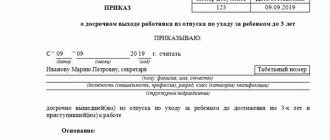Summer holidays and legislation
The right to vacation is guaranteed by the Labor Code of the Russian Federation, a number of its articles developing Art. 37 of the Basic Law of the Russian Federation. It talks about the human right to rest and annual leave.
Paid holidays are discussed in Art. 122 of the Labor Code, and about vacation at your own expense - in Art. 128. Moreover, both articles contain the obligation of the administration to provide vacations in the summer to certain categories of citizens. They are either included in the text of the articles, or are contained in references to other federal laws, regulations, articles of the Labor Code itself, which serve as the basis for such benefits.
The rules governing the right to choose annual leave in the summer are also contained in the Labor Code of the Russian Federation in Art. 286, 123, 267, etc., some Federal Laws and regulations. Thus, the legislative framework for providing priority vacation in the summer is quite extensive.
Regulations and principles
Vacation can be basic or additional. The main one is due to every working citizen and is provided once a year, although sometimes it is divided into two parts and the citizen exercises his right to rest twice a year (14 days each). The main vacation unused in the current year is transferred to the next year.
The enterprise draws up a vacation calendar in agreement with the trade union 2 weeks before the new calendar year. Workers go on vacation strictly according to schedule.
But some of them have the right to choose the period of their vacation at their discretion:
- women during pregnancy or while caring for children under 3 years of age (Article 122, Part 2);
- men caring for a child under 3 years of age or having pregnant wives (Part 4 of Article 123 of the Labor Code of the Russian Federation);
- parents of children under 7 years of age;
- families with children from 7 to 10 years old in the summer.
The procedure and conditions for granting leave to employees with minor children are regulated by Art. 262 Labor Code of the Russian Federation.
Who benefits from the benefit?
Employees who have a priority right to paid vacation in the summer are:
- adoptive parents of children under 3 months (Article 122 of the Labor Code of the Russian Federation);
- maternity leave, before (after) leave under BiR (Articles 122, 260 of the Labor Code of the Russian Federation);
- husbands of women on leave under BiR (Article 123 of the Labor Code of the Russian Federation);
- workers who have not reached the age of majority (Articles 122, 267 of the Labor Code of the Russian Federation);
- spouses of a person in military service (Federal Law 76 Art. 11-11);
- working disabled people, WWII veterans, workers of military facilities during the WWII, blockade survivors” (FZ-5, art. 14, 16, 17,18, 19);
- heroes of the Soviet Union and Russia (FZ-4301-1, art. 8);
- part-time workers if they have summer vacation at their main job (Article 286 of the Labor Code of the Russian Federation);
- honorary donors (Federal Law-125 Art. 23-1-1);
- fathers and mothers with many children, parents of children with disabilities (Articles 262.1, 262.2 of the Labor Code of the Russian Federation).
In addition, according to Art. 128 of the Labor Code of the Russian Federation, the right to go on vacation at their own expense at any convenient time, not excluding summer, has:
- WWII participants who continue to work;
- old age pensioners;
- family members of a military personnel;
- disabled workers;
- workers for family reasons, for example, the birth of a child, marriage;
- parents of minors - in some cases.
Each category has its own limit on the provision of leave. One of the most common cases of going on vacation in the summer without pay is for family reasons. Its duration is up to 5 days.
Attention! If an employee has been recalled from annual leave, he has the right to use the remainder during the summer period out of turn (Article 125 of the Labor Code of the Russian Federation).
Basic terms of provision
Basic conditions for granting leave to parents with children:
- Leave for such categories is provided on a general basis, that is, 28 calendar days with the possibility of extension depending on length of service and the characteristics of working conditions.
- If an employee’s minor child is disabled, then the right to an additional period of rest and choice of vacation time is granted.
- If there are children of primary school and preschool age, the employee is guaranteed vacation in the summer.
- The parent of a child under 3 years of age (mother, father or other relative) receives the right to parental leave after completing maternity leave.
At the same time, the employee retains the right to interrupt vacation and start work at his own discretion (Article 123 of the Labor Code of the Russian Federation). Parents have the right to divide maternity leave among themselves and take it in turns.
- If there is a disabled child in the family, parents have the right to receive annual paid leave, as well as additional leave without pay for a period of 1 month, if this is stipulated in the collective agreement. Such leave is usually associated with the treatment and rehabilitation of the child.
- In addition, mothers of disabled children, their guardians or trustees have the right to 4 additional days off during the month with preservation of earnings.
Parents raising minor children can receive leave depending on age, health status and certain other conditions:
- If children are aged 7-10 years , the mother has the right to take another calendar leave of standard duration during the summer holidays.
- If there is a first-grader child, leave is granted for 3 days without pay. This is provided for by the Labor Code of the Russian Federation. Usually parents prefer vacation on the last 2 days of August and 1 September.
- A mother with two or more children under 14 years of age is guaranteed additional leave without pay for a period of 2 weeks in addition to the annual standard.
- If children are under 7 years old , then parents have the right to take leave at any time convenient for the family.
Parents have the right to exercise their leave rights and the employer must not deny them.
If parents did not use their right to unpaid preferential leave during a given year, then it cannot be transferred to subsequent years. The purpose of such a vacation is to make life easier for families with children this particular year.
Parents with minor children or disabled children can divide the days of additional leave due to them among themselves, or one of them can take all the days of leave at their place of work.
Guarantees related to motherhood and childhood for the unemployed
Women giving birth who are not studying full-time and are not employed fall into the category of the unemployed. They have minimum guarantees related to pregnancy and subsequent childbirth. Moreover, a separate category of women was dismissed due to the closure of the company.
Payments to unemployed women in labor and mothers:
| Type of charges | Size (thousand rubles) |
| With early registration for medical registration | 0,613 |
| For pregnancy and childbirth | Based on 0.613 per month |
| When the baby arrives | 16,35 |
| Care for up to one and a half years | 3,066 - for the first; 6,131 - on the second and subsequent |
| For women in labor who were dismissed due to the liquidation of the enterprise, the calculation is based on earnings for the previous two years |
Social security authorities handle the paperwork. You must bring an application and a package of documents (given above).
Additionally included:
- a copy of the work book;
- income certificates for the previous two years from all employers.
Families with minor children - special attention
First of all, we are talking about fathers and mothers with many children who have children under 12 years of age. Their right to take paid leave out of turn in the summer is guaranteed by Art. 262.2 Labor Code of the Russian Federation. The father and mother have the right to take such leave simultaneously or separately, each of the parents. If one of the spouses has already used summer leave, this does not deprive the other parent of the right to benefits.
The question of the vacation schedule, which is approved in advance, and how to combine the requirements of the law with this document, is ambiguous. A number of experts believe that parents with many children are obliged to decide on vacation in advance, and taking this information into account, the personnel service draws up a vacation schedule. Other jurists believe that Art. 262.2 does not oblige parents to do this; they can take leave at any time without notifying them in advance. Today, judicial practice is in favor of the second option.
According to Art. 123 of the Labor Code of the Russian Federation, if vacation is provided according to a schedule, you do not need to write an application for it. Accordingly, if a father or mother with many children decides to take a summer vacation and the schedule does not contain this information, an application is required.
A similar rule is contained in Art. 262.1 TK. We are talking about parents of disabled minors. They can also take paid annual leave at any time, including in the summer, but here we are talking about only one of the parents. The blood parents of a disabled person and guardians, trustees of the child, and adoptive parents have equal rights.
Additional unpaid leave in the summer can be provided to parents in the following cases (according to Article 263 of the Labor Code of the Russian Federation):
- if the employee has 2 or more children under 14 years of age;
- if the employee has a disabled child under 18 years of age;
- if a child under 14 years of age is raised by a single mother or a father without a mother.
Such leave must be provided for in the collective agreement and provided upon application by the employee for a period of up to half a month (14 days).
Documents for maternity leave
The Russian Labor Code defines a number of documents that must be presented in order to apply for maternity leave. In particular, the following documents are defined as:
- sick leave;
- an application, which is drawn up in accordance with the sample, and a certificate, which must confirm that the woman is registered with a medical specialist before her pregnancy reaches 12 weeks;
- Another document that may be useful in this case is a certificate of incapacity for work due to pregnancy.
According to strict reporting forms, goods and materials are issued, etc. It can be issued by an obstetrician-gynecologist, a family doctor, and in remote villages - by a paramedic after examining the pregnant woman and subject to registration. Extension of sick leave is also carried out by a health worker.
If a pregnant woman is employed simultaneously by several employers and has worked for them for the previous two years, she is given several sick leaves to present at each place of work (clause 4 of Order No. 624).
The state encourages pregnant women to visit medical institutions earlier. Those registered before the 12th week of pregnancy have the right to receive a one-time benefit of 300 rubles (Articles 9, 10 of Federal Law No. 81). This benefit is also paid by the Social Insurance Fund through the employer on the basis of a certificate from a medical institution.
Rights of parents of minor children to leave
Providing a period of rest to persons with a minor son or daughter is carried out on the basis of the norms of the Labor Code of the Russian Federation. The provisions that regulate this right and its features can be presented as follows:
- The provision of this time to persons with children is carried out in accordance with the general procedure. That is, the usual basic duration each year is 28 days and can be increased depending on length of service, harmful working conditions and other factors;
- rest also depends on their state of health. If a son or daughter is disabled, then the parents receive the opportunity for additional leave and priority in choosing the time for rest;
- employees who have a son or daughter under the age of seven have the opportunity to go on vacation in the summer and take the time necessary to care for their children.
In addition, maternity leave is an important guarantee. Both mothers and fathers with children under 3 years of age have the right to receive such time. If your rights are violated, do not ignore it.
Labor Code of the Russian Federation - leave for parents of minor children
The law distinguishes several categories of parents with sons or daughters under twelve years of age. Depending on the category, there are specifics regarding vacations for these individuals. They should be specified in more detail:
- Article 123 of the Labor Code establishes the right to receive a period of care for a minor son or daughter. This period covers the time after childbirth until the age of three;
- employees who have minors under seven years of age;
- workers raising children from seven to 10 years old.
These categories of workers have benefits for the provision of rest at a time convenient for them. And the employer has no right to refuse them this.
Paid annually
Important! Parents with children under twelve years of age can count on an annual paid vacation. This right of an employee is prescribed in Article 115 of the State Labor Code.
The length of the weekend for parents does not change upward. Moms and dads can rest for 28 days. The employer can stipulate additional holidays in the collective agreement.
Article 115 of the Labor Code of the Russian Federation. Duration of annual basic paid leave
Annual basic paid leave is provided to employees for 28 calendar days.
Annual basic paid leave of more than 28 calendar days (extended basic leave) is provided to employees in accordance with this Code and other federal laws.
Priority: can I take it at any convenient time?
Until recently, domestic parents had such a right; in 2014, the Supreme Court of the Russian Federation recognized the decisions of the Soviet Union as valid and not contradicting modern legislative acts.
Let us recall that the order of the Council of Ministers of the USSR dated 1985 N 2275r established the right to choose the time of rest for single men raising children under twelve years of age, and the law “On measures to strengthen government support for families with children” dated 05.19.1995 N 81-FZ established a similar right for parents in two-parent families. The right of parents with two or more children under the age of 14 to additional administrative leave.
Article 263 of the Labor Code of the Russian Federation states that the right to additional leave is granted to the following categories of workers with children:
- Employees with two or more children under 14 years of age.
- Women and men with a disabled child under 18 years of age.
- Single mothers and fathers with a child under 14 years old.
Article 263 of the Labor Code of the Russian Federation. Additional unpaid leave for persons caring for children
An employee who has two or more children under the age of fourteen, an employee who has a disabled child under the age of eighteen, a single mother raising a child under the age of fourteen, a father raising a child under the age of fourteen without a mother, a collective agreement annual additional leaves without pay may be established at a time convenient for them, lasting up to 14 calendar days.
The specified leave, upon the written application of the employee, can be added to the annual paid leave or used separately in full or in parts. Transferring this leave to the next working year is not allowed.
The above categories of citizens have the opportunity to receive additional time off, which does not provide for retention of salary, for up to fourteen days. Social guarantees are established by employer regulations or a collective agreement.
The employee makes a written application to take such time off. It can be added to an annual paid leave of 28 days (thus, an employee-parent can take one, partially paid leave, the amount of which is 42 days).
Additional administrative time off can be used in full or in parts. However, it is not allowed to carry it over to the next year. If a parent does not take advantage of the weekend, it is lost. In this case, we are not talking about the obligation of each employer, but about the right of the applicant. Therefore, no compensation is due for unused vacation.
In 2015, the government of the Russian Federation adopted Law No. 242, which provided for the introduction of a new provision into the Labor Code. For several years now, article 262.1 of the profile code of the Russian Federation, entitled “The order of granting annual paid leave to persons raising disabled children,” has been in force in our country.
Employees who are raising children with disabilities have the right to demand rest at a convenient time, regardless of the schedule drawn up by the employer.
Is it possible to take parental leave for a child under 14 years old?
The Labor Code provides for different age restrictions regarding the right of parents to parental leave. For example, all parents are entitled to paid leave from the birth of a child until the child reaches the age of three. After this milestone, parents can only apply for unpaid leave, which is given only to certain categories of workers.
The question of what parental leave is is most fully disclosed in Article 256 of the Labor Code - if the child is native, and in Article 257 - if he was adopted. In total, there are two options for child-related leave - paid and unpaid.
Unpaid leave
answer the question of whether it is possible to go on leave without pay to care for a child under 14 years of age under the Labor Code of the Russian Federation .
Thus, additional parental leave, which does not imply preservation of wages, is intended for a certain group of workers, which include:
- employees raising two or more children under fourteen years of age;
- employees raising a child (or children) with a disability who has not reached the age of majority;
- single mothers whose children (or child) are not yet fourteen years old;
- single fathers raising a child under fourteen years of age.
Unlike paid leave, the period without pay is regulated by such an important document as a collective agreement. And if in a particular organization this agreement does not provide for the availability of such leaves for any category of employees (due to the characteristics of their specialization, etc.), then it will be impossible to obtain it. Also, the collective agreement contains information about whether the employee can take this leave in parts or only at a time.
If you want to take unpaid leave, it is important to remember that it does not carry over to the next year. Such a period at your own expense is either added to the regular paid period or used separately.
Paid holiday
Parents have the right to take paid leave until their child reaches one and a half years old. Moreover, leave is available not only for the father or mother of the child, but also for other relatives involved in raising the child - grandparents, and so on.
This leave option involves providing the child’s mother (or other relative) with several mandatory guarantees:
- payment of benefits (applies to children under one and a half years old);
- maintaining a job (a person who has gone on maternity leave cannot be laid off or fired);
- the entire vacation period is included in the insurance period.
In order to extend the time allotted to a woman to care for a child, she can also take advantage of standard paid leave, which can be taken before sick leave under the BiR or immediately upon its completion.
Maternity benefits in 2021 and 2021
Maternity benefits are also called maternity benefits. This is the money that a woman receives for the period before and after childbirth. During this time, she may not work, and the state will compensate for lost income.
Maternity pay is based on average earnings for a certain number of days. For normal childbirth, 140 days of vacation are paid. Average earnings are calculated based on salaries for the last two years. At the same time, there is a minimum and maximum amount of maternity leave. The minimum depends on the minimum wage, and the maximum depends on the limit for calculating insurance premiums. The payment limit is determined on the day when maternity leave begins.
If a woman goes on maternity leave in 2021, the limits for 2021 and 2021 will be taken into account when calculating average earnings. If maternity leave begins in 2020, you need to take into account the maximum base for insurance premiums in 2019 and 2021. And for maternity leave starting in 2021, the limits are for 2021 and 2019. All these amounts are already known. If a woman’s annual income is greater than the maximum base for contributions, she can now calculate how much she will receive from the state before giving birth.
Minimum amounts of maternity leave
| When does maternity leave begin? | Minimum wage | At what average daily earnings is the minimum paid? | Maternity leave for 140 days |
| 2019 | RUB 11,280 | ≤ 370.85 R | RUB 51,919 |
| 2020 | RUB 12,130 | ≤ 398.79 R | 55,830.6 R |
Maternity leave starts in 2021
Minimum wage 11,280 RUR
At what average daily earnings do they pay a minimum of ≤ 370.85 R
Maternity pay for 140 days 51,919 RUR
Maternity leave starts in 2021
Minimum wage 12,130 RUR
At what average daily earnings do they pay a minimum of ≤ 398.79 R
Maternity pay for 140 days 55,830.6 R
Maximum amounts of maternity leave
| When does maternity leave begin? | Limit for contributions for the previous two years | At what average daily earnings is the maximum paid? | Maternity leave for 140 days |
| 2019 | RUB 1,570,000 | ≥ 2150.68 R | 301,095.2 R |
| 2020 | RUB 1,680,000 | ≥ 2301.37 R | RUR 322,191.8 |
| 2021 | RUB 1,777,000 | ≥ 2430.62 R | 340 328, 83 R |
Maternity leave starts in 2021
The limit for contributions for the two previous years is 1,570,000 RUR
At what average daily earnings do they pay a maximum of ≥ 2150.68 R
Maternity pay for 140 days 301,095.2 R
Maternity leave starts in 2021
The limit for contributions for the two previous years is 1,680,000 RUR
At what average daily earnings do they pay a maximum of ≥ 2301.37 R
Maternity pay for 140 days 322,191.8 R
Maternity leave starts in 2021
The limit for contributions for the two previous years is 1,777,000 RUR
At what average daily earnings do they pay a maximum of ≥ 2430.62 R
Maternity pay for 140 days 340 328.83 R
For maternity leave, which will begin in 2021, a woman will receive from the Social Insurance Fund no less than 55,830 and no more than 322,192 rubles. Women who receive more than 70 thousand rubles a month will lose money because of maternity leave: the state will not reimburse them 100% of the usual earnings. If you don’t want to lose money, you can continue to work even until you give birth - and receive a regular salary instead of benefits. But they will not pay wages and maternity leave at the same time.
Maternity benefits are paid only to women. Men are not entitled to it. Those who give birth go on maternity leave. But anyone can go on parental leave: mom, dad, and even grandma.
In what cases may it be necessary to provide maternity leave until the age of 14?
Extending maternity leave after three years is a pressing issue for many women. The reasons may be different, they are individual:
- Inability to register a child for kindergarten.
- Frequent illnesses of the child during the period of adaptation to kindergarten.
- The child has a complex disease.
- Assigning a child the status of a disabled person.
- Having an unofficial place of work.
- Attempts to change place of residence.
It is very rare to encounter a situation where a woman simply does not want to go to work and begin performing her official duties. She wishes to extend the period of her leave, despite the space provided in the garden and the absence of health problems for the minor. At the same time, the citizen does not want to lose her job, trying to save it by extending the general period of maternity leave.
How to apply?
Article 263 of the Labor Code of the Russian Federation indicates that the following employees can apply for additional leave without pay:
- having two or more children who are under 14 years of age;
- raising a minor child with a disability;
- single mothers or fathers with a child under 14 years of age.
To go on parental leave to care for a disabled child under 14 years of age, you must discuss this possibility with the employer. If you receive approval, you must write an application.
It can be drawn up either by the child’s mother or by his other relatives, guardians or adoptive parents.
If the collective agreement stipulates that such leaves are provided, the employer cannot refuse to provide them.
There are no specific requirements for writing an application; each organization prepares it differently. But, despite this, the document must contain the following points:
- Company name;
- Full name of the head;
- Full name of the applicant and his position;
- a clear statement of the request;
- mention of circumstances forcing a woman to temporarily leave her workplace;
- date and signature.
When the vacation comes to an end, the employee has the right to resign of her own free will, having previously written a corresponding statement.
Unofficial maternity leave until age 14
There is only one condition for maternity leave before the age of 14 - the mother’s dismissal from her official place of work. After resigning, you can unofficially extend your maternity leave. However, this will directly affect the overall work experience. The work record will gather dust on the shelf until further employment.
In a hopeless situation, a woman has the right to discuss some nuances with the employer. This will make it possible to get a job in the same place when it is released in subsequent years. However, it is impossible to guarantee the fulfillment of agreements in this case, since they are not fixed on paper.
Some employers may accommodate employees who have children under 14 years of age, giving the opportunity to extend maternity leave for a certain period. Such actions are not individual in nature; they must be enshrined in a valid collective agreement. At the same time, such leave is not controlled at the state level. Therefore, a woman has no right to demand its provision.
Previously, during the Soviet era, a woman raising a child with a disability had the right to quit her job, while she retained her seniority. It was extended for the entire period of child care. This made it possible at a later date to find a job without problems and receive a decent pension.
Dismissal due to caring for a child under 14 years of age
There is also a misconception that it is possible to provide maternity leave until the child reaches 14 years of age. This concept is often confused with dismissal due to the need to care for a child until he reaches 14 years of age.
The current legislation does not contain the concept, as well as the possibility of leaving a child on maternity leave until the age of 14 in Russia.
The difference is that when an employee goes on maternity leave, her job and position are retained, but when she is fired, the employment relationship between such an employee and the employer is completely terminated.
Important! Dismissal for this reason will be a valid reason, however, the parent will not receive any special benefits. But at the same time, the opportunity to find a job at any time and place remains.
Until 2007, dismissal for this reason gave the right to maintain seniority, however, today this rule does not apply. But in Ukraine, the specified wording in dismissal is still the basis for maintaining continuous service.
To summarize the above, it can be determined that the current legislation of the Russian Federation does not provide for the possibility of extending maternity leave until the child’s 14th birthday.
How to quit for this reason?
A disabled person with serious health problems may require care throughout their life. A working mother will not be able to pay enough attention to her special child, so a reasonable decision would be to give up continuing her career.
If an officially employed woman wants to quit due to the need to care for a disabled child, first of all she needs to notify the employer of her intentions in order to agree on a settlement date. After this you need to fill out an application.
The reason for dismissal should be “child care.” Pointing out this reason will be important later in order to obtain some benefits:
- accrual of benefits in full;
- receiving additional social benefits;
- accrual of seniority;
- minimizing problems with further employment.
The completed application should be submitted to management for final confirmation, and a copy with an acceptance stamp should be kept for yourself. In such a situation, disagreements with superiors usually do not arise, but in life there are different cases.
It is important to remember that an employer does not have the right to prohibit a woman from quitting her job to care for a child with disabilities, or for any other purpose.
According to labor law, an employee must work for two weeks before dismissal.
Therefore, the date of departure should be planned taking into account this period.
Management often accommodates women with disabled children and allows them to leave without working. To increase the chances of loyalty from management, it is worth having medical certificates confirming the child’s health status.
Without permission, you cannot ignore the need to work out the allotted time, even if there are good reasons. An employer has the right to dismiss an employee for absenteeism, regardless of the circumstances.
At the end of the dismissal procedure, the manager, on the basis of the application submitted to him, issues an order to remove the employee from his position.
Then compensation is necessarily paid, wages are transferred and a work book is issued with the entry “Dismissed at his own request, paragraph 3 of Article 77 of the Labor Code of the Russian Federation.”
Sample entry in the labor record:
In the dismissal order, the employer must write that the employee was dismissed of her own free will due to the need to care for a disabled child.
Ask your employer for a copy of the order and keep it.
The legislation of the Russian Federation is ready to support people who are forced to leave work because their child needs care.
To improve their living conditions, parents can join the labor exchange, undergo free training in a sought-after specialty, and receive unemployment benefits.
We talked in more detail about dismissal during maternity leave in this article.
If a child is sick, you can be on sick leave to care for a sick family member. But you need to take care of children even when sick leave is not issued. Despite the fact that the law does not stipulate the possibility of providing parental leave to care for a child with disabilities under 14 years of age, maternity leave can be extended by agreement with the employer.
If management does not agree, you should resign, indicating in your application the reason why further employment is impossible.
Payments when taking maternity leave
Since the usual period of stay on maternity leave is about 4-5 months, the minimum possible amount of payment is set for this period. It is equal to 27,455 rubles, the maximum amount of payment for maternity leave is 228,603.2 rubles.
The amount of the benefit is determined on the following basis: the average earnings for one day spent at work are multiplied by the number of days that she should spend on vacation. The maximum amount of earnings per day is of limited importance.
Maternity benefits are accrued on the basis of a certificate of incapacity for work issued by the medical institution in which the woman was registered. The benefit is paid for calendar days that fell during the period of incapacity for work.
Cash is accrued taking into account the average earnings of the insured person, calculated for 2 calendar years
preceding the year of maternity or child care leave.
The minimum benefit amount is not less than the minimum wage. The amount is not subject to personal income tax, unified social tax, pension contributions and contributions for compulsory accident insurance.
The following are entitled to the benefit in question:
- all working women;
- unemployed people registered with the employment service;
- female students;
- women military personnel;
- working in military organizations as civilians.
Payment for maternity leave does not continue if the employee returns to work ahead of schedule.
The government has come up with a proposal to increase sick leave, child care benefits, and maternity benefits. The maximum value of maternity benefits in 2021 will be 62 thousand rubles.
Sick leave during this period will not exceed 62 thousand rubles. To apply for the maximum payment for sick leave, pregnancy and childbirth, you must have official earnings of 755 thousand rubles over the past 12 months, but not less than 718 thousand rubles. for the last few year s. Otherwise, the accruals will be lower.
A pregnant woman, when registering at an early stage, must register the beginning of maternity leave. This must be done before the 12th week of pregnancy. The payment in this case will be equal to 613 rubles and 14 kopecks.
To obtain such a benefit, you need to provide the relevant authorities with a package of documents related to the ongoing pregnancy and subsequent births, as well as a certificate from the consultation where the woman was registered.
To receive maternity benefits in 2021, you need to know:
- if the birth took place without complications, and the maternity leave is 140 days, the woman is entitled to 34,520 thousand rubles. and 55 kopecks;
- if there are complications during childbirth, and the duration of maternity leave is 156 days, 38,465 thousand rubles are due. and 75 kopecks;
- in case of multiple pregnancy, the number of maternity days is 194, and the payment is equal to 47.835 thousand rubles. and 62 kopecks.
At the birth of a child, the mother is entitled to a one-time benefit equal to 16,350 thousand rubles. and 33 kopecks. The benefit is issued until the child is 6 months old from birth.
. Able-bodied women apply for such benefits in the personnel department, and the unemployed - in the social service, and students - in the dean's office.
For parents of disabled people
The state Labor Code notes that employees who have a son or daughter under the age of seven can go on vacation in the summer , as well as take additional time to care for children. Additional time off can also be provided for health reasons of the son or daughter, if he had previously been assigned a disability group.
Attention! A father and mother whose children have reached the age of 14 do not have additional preferences noted in the labor legislation of the Russian Federation.
Entitlement to an additional monthly 4 days of paid holidays
The parent of a disabled child has the right, enshrined in Article 262 of the Labor Code of the Russian Federation, to 4 additional paid days off per month. If both the mother and father of such a child work, then they can divide the four days between two at their own discretion.
Registration of an extraordinary
Each of the parents, guardians, and guarantors can apply for additional days off in accordance with government decree No. 1048 dated October 13, 2014. Leave of such a plan is granted on the basis of an order from the manager based on the results of consideration of the application. In addition to the application, the employee will have to provide a package of documents.
What documents are needed?
- Documents for the baby: birth certificate (original) and certificate of disability (certificate from the bureau of medical and social examination).
- Documents confirming the place of residence of a disabled child.
- A certificate from the other spouse’s place of work stating that he did not exercise his rights at the workplace and did not request additional days off from his superiors.
- Statement of the need to provide the parent/guardian with additional days off.
Help: If a guardian or trustee of a child applies for additional days off, he must provide a document confirming his status.
- It is also worth remembering that in order for both parents to take advantage of additional days off, only one must register for them at their place of work. If, for example, a mother turns to an employer, she will be able to use her days both alone and together with her father. The father will not have to draw up the same schedule at his place of work; it will be enough to present a certificate.
It is issued after accepting an application from an employee. The last nuance is that the certificate will have to be provided regularly if a disabled child undergoes an examination every year and receives a new certificate of disability.
How are they paid?
Additional days off for parents raising children with disabilities under eighteen years of age are paid. The employer makes calculations for such days in the standard mode in accordance with the rate. Weekends are paid along with the payment of wages .
Russian laws provide for a relaxation of the work schedule for parents who have small children and parents of disabled children. You can take advantage of your options for unpaid additional leave and paid days off. Additional rights for the mother and father of disabled children are provided under the article on choosing the time of rest.
Procedure for calculating maternity benefits
Maternity leave includes the last few months of pregnancy, the birth of the child, and the recovery process after childbirth, which lasts several weeks.
In 2021, the following categories of expectant mothers can count on benefits:
- with a permanent place of work and payment of insurance contributions to the Social Insurance Fund;
- women left without work due to the liquidation of the organization where they worked;
- female and full-time students;
- women serving in the ranks of the Russian Armed Forces;
- employees of the Ministry of Internal Affairs;
- self-employed women (entrepreneurs, lawyers, notaries) who have paid the required contributions to the Social Insurance Fund for at least six months;
- adoptive mothers of children.
Who is entitled to maternity benefits?
According to the law, maternity leave can begin from the 30th week of pregnancy. If a woman is carrying 2 or more children, she can go on vacation after the 28th week of pregnancy. When the deadline exceeds the specified time, a sick leave certificate is issued in a medical institution where the expectant mother is seen by a gynecologist. The employer needs it to register maternity leave and calculate benefits. After providing all the necessary documentation, the expectant mother must receive all the funds due to her within 10 days.
Important! Legislators have given the expectant mother the right to delay going on vacation, provided that her health condition allows her to continue working. After registration of maternity leave, the amount will be calculated based on the number of days of sick leave
Duration of vacation
How much vacation is a woman entitled to? Its duration during pregnancy and childbirth is determined by the periods indicated in the certificates of incapacity for work, and can be:
- 140 days (70 days before the onset of labor and 70 after) in the normal course of a singleton pregnancy;
- 156 days (70 days before and 86 after) if a singleton pregnancy resulted in a difficult birth;
- 194 days (84 days before childbirth and 110 after) if a woman is carrying two or more children.
Note! If labor began much earlier than the time specified by the doctor, then the remaining days on sick leave will be taken into account when calculating compensation after the birth of the child. Thus, the deadline specified by law will not be violated
Benefit calculation
All maternity payments will depend on the mother's salary in previous years. The calculation is made on the basis of wages for the previous 2 years of her work (2017 and 2021), excluding sick leave, previous maternity leave and parental leave.
How are maternity benefits calculated?
Based on salary, how much is maternity leave? For the calculation, 100% of the woman’s earnings are taken. The amount of maternity payments is determined based on the average salary for 1 working day. To determine it, you can use the formula:
SDZ = SZ/Dn,
where SDZ is the average daily earnings;
SZ - the value of wages for the previous 2 years, determined by adding wages for each month;
Day - the number of days in the billing period, which is 2 years.
The 2-year period with the highest earnings must be selected for the calculation, so the amount can be increased. Next, the amount of payment during maternity leave is calculated; the following formula can be applied to it:
P = SDZ * T,
where P is the amount of maternity benefit;
T—days of leave a woman is entitled to.
Important! If the expectant mother works simultaneously in several places, then she has the right to apply for maternity leave in each organization where she works. But a woman can receive compensation for child care only in 1 organization
How are maternity benefits paid and when? In the normal course of pregnancy, the first sick leave will be issued at the 30th week of pregnancy at the medical institution where the expectant mother is registered. The document should be handed over to the employer, the benefit for it will be paid along with the salary.
If a woman raises a child alone
A mother raising a child alone can take unpaid leave to care for her child until he reaches 14 years of age. The same rule applies to single fathers. The only possible obstacle may be a collective agreement.
In addition to unpaid leave, single mothers are provided with a number of benefits, which must be provided by employers. One of the main benefits is guaranteed job retention for the mother until her child turns fourteen years old. This means that during the specified time the organization cannot fire an employee except for a number of valid reasons, such as:
- violation of labor obligations (with an existing disciplinary reprimand);
- failure to comply with the terms of the employment contract;
- monetary damage caused to the organization (if the employee is financially responsible);
- committing acts of a violent nature and other immoral offenses (if the employee works in an educational institution);
- providing false documents when concluding a contract with an employer.
All of the above grounds not only become a valid reason for dismissing an employee, but also entail criminal or administrative liability.
How long does it last
Russian legislation makes it possible to obtain maternity leave and funding for pregnancy and birth. This opportunity is provided to every working and unemployed expectant mother in late pregnancy. Defined by:
- 70 days before the birth and 70 days after the birth of the child.
- 70 days before the birth and 86 days after the birth of the child - if there were complications during childbirth.
- for 84 days before the birth and for 110 days after the birth of the child - if a woman gives birth to more than one child at the same time.
When a sick leave certificate is issued, then the start of the maternity leave is determined. This paper is completed no later than the 30th week of pregnancy. If a woman gives birth to more than one child at the same time, then submission of the necessary documents is allowed at 28 weeks.
It is also determined that if childbirth is delayed, there is no reason for changes in the period of vacation days. The law stipulates that the deadlines can be extended; for this, an additional sheet is submitted that confirms the incapacity for work, after which the applicant submits a request for additional vacation days.
How to confirm and exercise the right to leave
The preferential right to leave is confirmed by providing the relevant documents. Thus, parents with many children provide birth certificates for their children, pregnant women and their spouses - certificates from a medical institution, adoptive parents - adoption documents.
If summer vacation is not included in the schedule, an application from the employee is required. Otherwise, according to Art. 123 of the Labor Code of the Russian Federation, it is not the employee who must remind the administration about the start time of the vacation, but the management - notify the employee about the onset of the summer vacation, against signature, 2 weeks before it starts.
At the same time, there are often cases when an employer ignores the legal demands of employees and refuses to provide them with vacation in the summer. If mutual understanding cannot be reached, the employee has the opportunity to contact the labor inspectorate or the judicial authorities to exercise his rights.
Sources
- https://assistentus.ru/otpusk/kto-imeet-pervoocherednoe-pravo-na-otpusk-v-letnij-period/
- https://uriston.com/trudovoe-pravo/otsutstvie-na-rabochem-meste/otpusk/letom-s-detmi-do-14-let.html
- https://russiansu.ru/otpuska/otpusk-dlya-roditelej-imeyushhix-nesovershennoletnix-detej.html
- https://naim.guru/shtat/otpusk-rabotnika/imeyushhih-detej.html
- https://dubna-uszn.ru/otpusk-po-uhodu-za-rebenkom-do-14-let-trudovoj-kodeks.html
- https://law-fm.ru/lgoty/dekret-do-14-let-v-rossii-pravila-osnovaniya-i-usloviya/
- https://otrude.com/otpusk/dekretnyj-otpusk/po-uhodu-za-rebenkom/do-14-let/
- https://lgoty-vsem.ru/posobie/dekret-do-14-let.html
[collapse]









